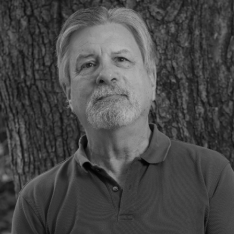In
Flightless Falcon, debut author, James Charles Smith, writes a coming-of-age, historical novel set during the Vietnam War and tells the story of a young man named Sam Roberts. It begins in April of 1969 and Sam, who disagrees with the U.S.’s stance on the Vietnam War, has just resigned from the Air Force Academy after being there only a year. Having also separated from his girlfriend, he is unsure of what the future holds and decides to set off on a hitchhiking journey along I-70, trekking from Colorado all the way to his hometown of St. Louis, Missouri. While the book is fictionalized, Smith does share several similarities with his protagonist. According to Smith, “…the general trajectory of this story is pretty much a memoir as far as, yes, I went to the Air Force Academy, yes, I resigned, and yes, I hitchhiked home. Beyond that, though, it’s all fictional. The characters are totally from my imagination, the events that happened during the story itself are products of my imagination only. Actually, the trip was fairly boring. I had to make a lot of stuff up.” However, he did make sure that the information regarding the Air Force Academy was true to life because he didn’t want to embellish any part of his experience there. “I felt a duty to keep that as true as I possibly could, so that turns out to be more factual, and the same thing can be said with… I did a lot of research into what things were happening at that time, what did things look like. I wanted to make sure I didn’t go to a restaurant that wasn’t established yet, you know, that kind of stuff, so I did tons of research on that.”
Although Flightless Falcon was set during the Vietnam War, Smith explained that the political climate then was not that different than it is now. He remarked, “The division within the country is just as bad or worse…” In spite of that, “…what I wanted [readers] to take away was… the importance of respect for each other and to have empathy and not to just assume that everyone is evil. That is the thing that I think is the hardest to experience, is not only now instead of saying, ‘Well, your policies are wrong,’ we’re saying, ‘No, you’re evil.’ That’s just not the way to go. We’ve got to learn to be more respectful somehow.”





Want to join the discussion?
Feel free to contribute!